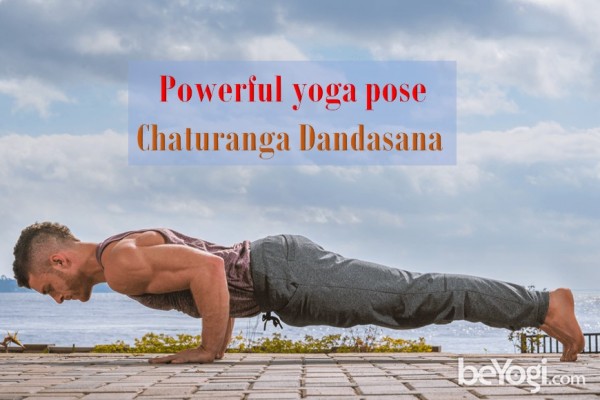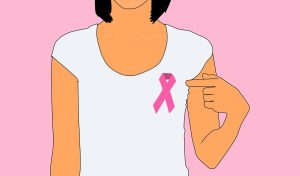
Powerful yoga pose Chaturanga Dandasana
Often referred as low plank pose, Chaturanga Dandasana, Four limbed staff pose is a intermediate yoga pose. It resembles a push up with a difference -dandasana is a straight-line pose where body is aligned correctly and limbs and hands support the body. It is a challenging pose for yogis and takes many practices to get it correct. It is a major component of Vinyasa, Ashtanga and modern power yoga. It is an essential pose of Sun salutation or Surya namaskar. It strengthens and tones arms, wrists, abdominal muscles and lower back. It prepares body for arm balancing poses. It is one of the most desired pose of yogis and once learning accomplished the pose is a powerful tool for full body toner. – Healthylife
Four-Limbed Staff Pose Chaturanga Dandasana
LEVEL : Intermediate
Anatomy : Abs, Arms, Feet, Shoulders
Pose Type : Arm Balance, Core
Sanskrit :Chaturanga Dandasana (chaht-tour-ANG-ah don-DAHS-anna)
chatur = four anga = limb danda = staff
BENEFITS:
- Strengthens the arms, wrists, and shoulders
- Prepares the body for arm balances
- Strengthens the core
CONTRAINDICATIONS
- Wrist injuries and recent surgeries
- Carpal tunnel syndrome
- Slipped discs, along with other spinal issues
- Pregnancy
HOW TO
- Come into Plank pose. Make sure your hands are aligned beneath your shoulders, and distribute your body weight evenly between your hands and feet.
- Exhale and bend at the elbows. Slowly lower your body until it’s parallel to the floor, a few inches above your mat, and your arms are at a 90-degree angle. Hold your elbows in close to your ribs.
- Engage your abdomen and thighs to maintain length in the spine. Do not let your shoulders come lower than your elbows. (This will help protect your rotator cuff.)
- Lower your gaze so you are looking straight down, keeping your neck in line with your spine.
- To release, exhale and push up into Upward-Facing Dog. Beginners may lower down to the abdomen, preparing for Cobra pose.
MODIFY OR REPLACE
- Knees-Chest-Chin pose
- Bharmanasana (Tabletop pose)
SEQUENCING TIPS
Before:
- Downward-Facing Dog (Adho Mukha Savasana)
- Plank pose (Phalakasana)
After:
- Upward-Facing Dog (Urdhva Mukha Savasana)
- Downward-Facing Dog
TEACHING CUES
- Ground down through all four corners of your hands.
- Reach long through the legs, activating the leg muscles.
- As you exhale, lower down.
- Keep your arms hugged in close to your torso.
- Keep your neck long.
VARIATIONS
- Raise one leg as you lower down into Chaturanga. Keeping the leg raised, inhale and come up into Upward-Facing Dog.
WATCH OUT FOR
- Collapsing hips down
- Shoulders dipping below elbows
- Compressing low back
- Elbows flaring out to the sides
This article with image is published with prior permission from https://beyogi.com/learn-yoga
Author: HealthyLife | Posted on: May 9, 2018






















Write a comment